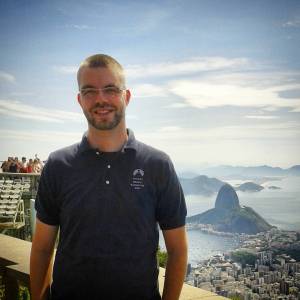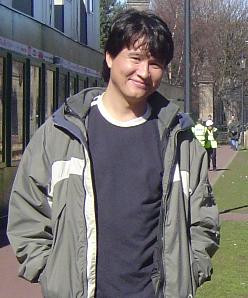Wednesday - September 25
Bite-sized software documentation
Christoph Treude - University of Adelaide, Australia
|
Abstract:
Software documentation is like farofa in Brazilian cuisine: it is an essential ingredient, it
can
be a bit dry, and it comes in many different forms. Finding the best parts (i.e., the bacon)
can be difficult, and we need tools to uncover them. To help software developers uncover the
best
parts of software documentation, we are developing approaches to get information to them
when and where they need it. This talk will highlight several approaches, including a task-based
search
interface for software documentation, an approach for improving compiler error messages with
content from Stack Overflow, and a badge-generator for sections of GitHub README files. While
much
of the information needed by software developers is already available somewhere, we still have a
long way to go to give developers the best tools for transforming documentation into bite-sized
pieces.
|
 |
Christoph Treude is an ARC DECRA Fellow and a Senior Lecturer in the School of Computer Science at the University of Adelaide, Australia. He completed his PhD in Computer Science at the University of Victoria, Canada, and spent two years in Brazil as a postdoctoral researcher at DIMAp/UFRN and IME/USP. The goal of his research is to advance collaborative software engineering through empirical studies and the innovation of processes and tools that explicitly take the wide variety of artefacts available in a software repository into account. |
|
|
Wednesday - September 25
Understanding the Impact of Continuous Integration in Open Source Projects
Uirá Kulesza - Federal University of Rio Grande do Norte, Natal
|
Abstract:
Continuous Integration (CI) is the practice of automating and
improving the frequency of code integration. Software projects have
adopted CI to ship new releases more frequently and to improve code
integration. Recent research has analyzed the benefits that CI can
bring to open-source projects by using mining software repositories
techniques. In this talk, I will present and discuss some results of
empirical studies conducted by our research group that analyzed the
impact of adopting CI practices on the delivery time of pull requests
and in the evolution of automated test artifacts.
|
 |
Uirá Kulesza is an associate professor in the Department of Informatics and Applied Mathematics (DIMAp), Federal University of Rio Grande do Norte (UFRN). He received his PhD in computer science from the Pontifical Catholic University of Rio de Janeiro (PUC-Rio) in Brazil, in cooperation with University of Waterloo (Canada) in 2007. He has a PQ-2 research grant from CNPq since 2010. He currently heads the Collaborative & Automated Software Engineering (CASE) Lab and Research Group at Digital Metropolis Institute (IMD), UFRN. His main research interests include software evolution, software architecture, and software analytics. |
